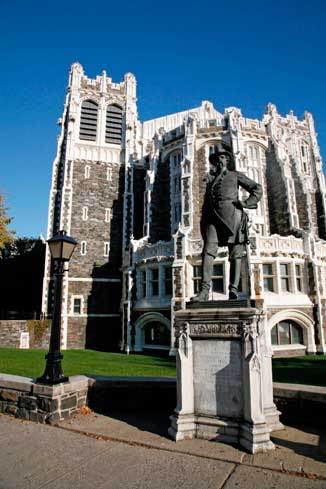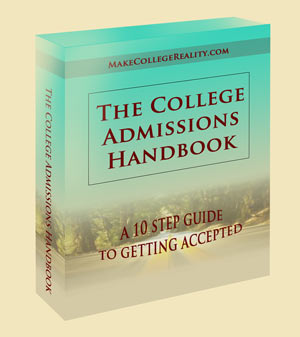 Teachers can have more than 100 students every year. While you may remember them well, it's hard for teacher to recall detailed information about every student they've had. Also, they may only know about how well you did in their class and not any others. You'll receive a much better recommendation if they know a little bit more about you than where you'd like to apply:
Teachers can have more than 100 students every year. While you may remember them well, it's hard for teacher to recall detailed information about every student they've had. Also, they may only know about how well you did in their class and not any others. You'll receive a much better recommendation if they know a little bit more about you than where you'd like to apply:
Where you're applying and why. If you already know which schools you'll be applying to, the person you've asked for a recommendation can address the letter specifically to each school. If they know why you're interested in the schools, they will be able to focus their recommendation on the characteristics that may help you gain admission to that particular school or program.
Transcript. This doesn't have to be an official transcript, but it will give the teacher an idea of how challenging your coursework has been and what you're interested in. They'll also be able to compare how well you did in their class to other classes.
Resume. This doesn't have to be a formal resume - it can simply be a list of activities in and outside of school and your role in them. It'll be especially important for them to know if you've held any leadership positions, how much volunteer work you've done, and how many hours you work at a job.
Essays you've written. If you've already written one or more essays for your applications, it might be a good idea to include these as well. This is optional, but it might give them a chance to see what you think your best qualities are.
Copies of essays or projects for their class. Remind the teacher what projects you worked on or what essays you wrote for their class. It's best if you can give them a copy of it, but if you didn't save any you should at least give them an idea of the type of work you did for them.
Ask how they want the information. Before you hand a teacher a packet of all your best work, ask him or her how they'd like to receive the information. Some may want to meet with you after school to talk in person, others may want all the information attached to an email, and some might like everything printed out and put in a folder. Let them know what kind of information you have prepared and ask what would be most useful for them to take a look at.
Envelopes and stamps. In addition to information about yourself, make sure you provide them with addressed envelopes and stamps if the recommendations need to be sent directly to the school. If they will be sent with the rest of your application, make sure you at least provide envelopes with the name of a school you're applying to on each.
Instructions. Let them know how many recommendations you need. Ask for a few extra generic ones in case you decide to apply to a school last minute. Usually, recommendations need to be signed across the seal and they may need to be on the school's letterhead. Be clear about which recommendations need to be sent to which schools, or if you will collect them and send them yourself. Double check the instructions on your applications and don't be afraid to contact colleges directly if you have any questions.
Time. Teachers will be very busy in the fall writing recommendations - especially if they teach mostly seniors. Give anyone you’d like to write a letter for you at least two weeks, if not a whole month, to get it done.
Thank them. Your teachers take time out of their schedule to help you out so make sure you send them a hand-written thank you note. When you get your acceptance letters, let them know what schools you got into and where you plan on going.
>>Quick guide to essay writing
Prepare
Apply
Before you start
Choosing a college
Recommendations
Essays
Paying for college
Succeed


